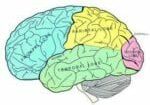Sharer of Joy: Nataly Kogan at TEDxBoston
This is some nifty stuff, and evidence that happiness is not necessarily all that hard to catch, and it is, in fact “catching.”
Nataly Kogan is the co-founder and CEO of happier.com. In her TEDx Talk she briefly covers some of the research about happiness, and notes that research shows that “focusing on small, positive moments that are part of our every day has been scientifically proven to fundamentally change how positive we feel. Research has shown that this makes people less stressed, more productive, less anxious, less depressed, it helps kids learn better in school, it helps employees be more productive at work. If you do this consistently this can have an impact such that it can help you catch fewer colds and have 50% fewer heart attacks.”
For people who are deeply depressed the happier moments don’t even have to be all that “happy.” They can be moments that are just OK, or moments that aren’t as depressing as other moments, like noticing something that smells nice, or that a clerk at a store was helpful, or that your pet’s fur is soft, or that you narrowly missed stepping in the big pile of dog poop left by your neighbor’s dog. Rick Hanson, noted neuropsychologist, author, and another happiness promoter points out that the first step in collecting happy moments is actually noticing that they occur. We have to make a conscious effort to be present to the nice smell, the helpful clerk, the soft fur and the dodged poop. When we stay caught up in pursuit of productivity and getting stuff done rather than taking a periodic break to notice the moment, we miss the moments. It really is as simple as taking time to smell the flowers, as old and trite and corny as that may sound. Another approach is to take a few minutes several times per day to bring your attention to that which you love, that for which you are grateful, or that which amazes you. After acknowledging the moment, the next step is to let it sink in. We can do this in any number of ways, from just sitting with it for a moment or imagining that we’re pulling it into our hearts. It really only takes about 20-30 seconds, and you don’t even have to stand still or close your eyes to do it. How cool is that? We really can change our brains. We can also teach this to our children. Rather than learning from us to focus on the stress and strain of life, they can learn from us to notice the beauty in the world. I tell my daughter to imagine a treasure chest in her heart where she keeps all her happy moments.
“Whatever we put our attention on will grow stronger in our life” Maharishi Mahesh Yogi.





















